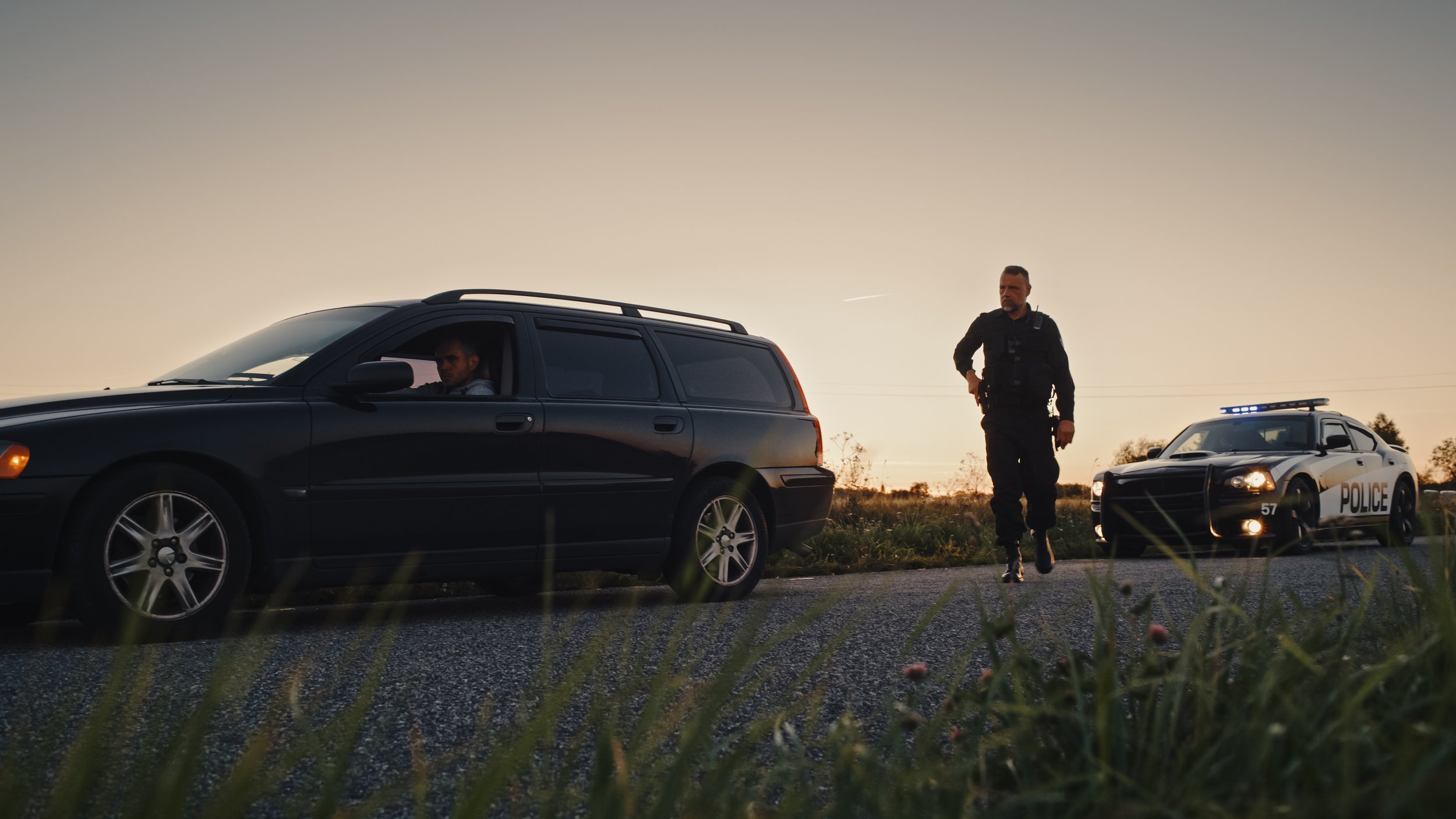
KNOW YOUR RIGHTS
Your Silence Is Powerful. Use It.
Stopped by Police in Virginia? Why Staying Silent Could Protect You From a Conviction
Whether you're stopped for a traffic violation, suspected of DUI, or questioned in connection with a criminal investigation, knowing your rights can be the difference between a dismissal and a conviction. Police are trained to gather evidence from the moment they make contact, and anything you say can and will be used against you. You have the right to remain silent and the right to an attorney. Use them! According to the Innocence Project, false confessions or admissions play a role in nearly 30% of wrongful convictions, many of them happening during police questioning. Don’t guess your way through the process. Call Battlefield Law Group, PLLC we’ll make sure your rights are protected from the very start.
DO NOT WAIVE YOUR RIGHTS TO REMAIN SILENT!
The police have a card that they can read to you advising you of your Miranda warnings. Below is your card to either read them or give to them to let them know that you know your rights.
“ I Want My Battlefield Law Group Attorney”
“Officer, I mean no disrespect, but I understand my rights.
I have been informed not to talk to anyone and I do not want to answer any questions without an attorney present.
Please do not search me or my property, do any test, do any line-ups, or any other identification procedures without an attorney present who is representing my interests.
I will not waive any of my constitutional rights without first consulting an attorney.
I do not want to perform any tests except as LEGALLY required under the DUI implied consent law.”

Know Your Rights: How to Handle a Police Encounter
Encounters with police officers in Virginia, especially during traffic stops or DUI investigations, can be high-stress situations with serious legal consequences. It’s important to know your rights under Virginia law. For example, you are not legally required to submit to a preliminary breath test (PBT) during a roadside stop under Va. Code § 18.2-267, and you may politely decline field sobriety tests, which are voluntary and not mandated by law. However, refusal to take a post-arrest chemical breath test at the station, as outlined in Va. Code § 18.2-268.2, can result in a civil license suspension or even criminal charges for a second offense. You also have the constitutional right to remain silent and to request an attorney—rights protected under both the Fifth and Sixth Amendments. Asserting these rights calmly and respectfully can protect you from self-incrimination and ensure fair treatment during any police interaction. If you find yourself in a situation with police, ask to speak with a lawyer at Battlefield Law Group before answering any questions.
STAY CALM & POLITE
• Remain calm and polite.
• Keep your hands visible.
• Do not argue, resist, or obstruct the police.
DO NOT RUN
• Running immediately turns the situation more dangerous for everyone.
• Running can lead to extra charges like felony eluding under Va. Code § 46.2-817.
ONLY DO WHAT IS REQUIRED BY LAW
• Politely decline any questions not required by law.
• Field Sobriety tests are meant to be failed—decline them.
• You may be arrested, but you have the right to decline preliminary breath tests.
Don’t Delay — Contact Us Today
Time is critical if you've been charged with a crime in Virginia. Whether you're facing a DUI, serious felony or a traffic misdemeanor, these charges can have lasting consequences. The experienced attorneys at Battlefield Law Group are prepared to fight for you. Don’t wait — contact us today for the strong defense you deserve!
CALL NOW: (571) 364-0500
info@battlefieldlawgroup.com
¡Sí, Hablamos Español!

AREAS OF PRACTICE
Our trial attorneys know Virginia law and understand how tough prosecutors can be. We make sure your voice is heard, your rights are protected, and your future is defended. With aggressive defense strategies tailored to your case, our mission is simple: to fight for the best possible outcome for you.
SERVING ALL COUNTIES IN NORTHERN VIRGINIA
Prince William | Fairfax | Culpeper | Fauquier | Stafford | Loudoun | Alexandria | Spotsylvania | Warren | Frederick | Winchester
Battlefield Law Group – Trusted Criminal & DUI Defense in Northern Virginia
Located in Old Town Manassas, Virginia, Battlefield Law Group is a trusted defense firm proudly serving clients across Northern Virginia. With a commitment to personalized attention and skilled representation, our experienced attorneys practice in a wide range of areas including: criminal defense, DUI/DWI, traffic tickets, reckless driving, protective orders, expungements, and much more. We are honored to assist individuals and families in the following counties: Prince William, Fairfax, Loudoun, Culpeper, Fauquier, Alexandria, Stafford, Spotsylvania, Frederick, Winchester, and Warren. Whether you’re navigating a complex legal issue or seeking guidance through a challenging time, Battlefield Law Group is here to provide strong advocacy and compassionate support every step of the way.







